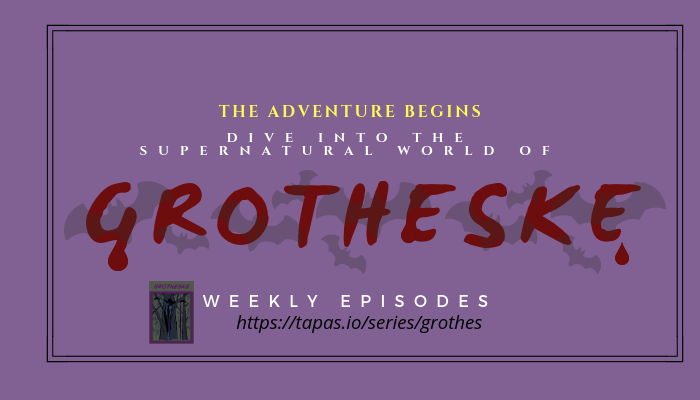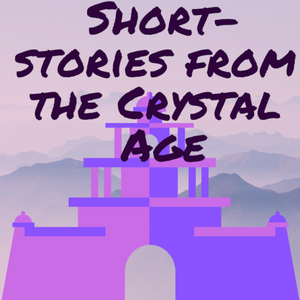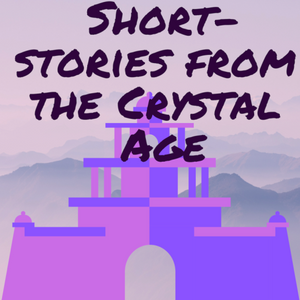If you want to read the short-stories, you will might need to dive into some aspects of alarhonian language.
This is not really a hard language to learn, because it is a language derived from the five elements, that is said to compose everything in the universe.
The language is called Alrhocrepseny or in a rough translation the "Language of the Elements". With time it shortened to only Alrhony, but the meaning is the same: the mix of all elements. It is said that the gods themselves teached this language to mankind. However, like every other language, in time it suffered some deviations from the original words as the language evolved.
Our intent here is not to give you a complete dictonary of alarhony words but some aspects of how those words are formed.
1- The roots
The five elements for the Alarhonians are: earth, water, fire, wind and crystal
Alarhe - earth, soil, land
Rhon - water, also is the mane of the Big Sea the only big portion of water that fills Alarhon.
Crep - fire
Senn - wind
Ny - crystal
Some important words are also used as a root of many words in Alrhony are based in the name of the seven sorceror gods, according to their creation:
Hiru - light or a positive afirmation, is also the word used to describe happyness (related to Hiriud)
Rmuz - darkness or a negative afirmation, also the word used to describe sorrow (related to Ormuz)
Rthoz - death and murder, there are no distiction of the two words, so you find what it is said about in the context of the speach (related to Erthoz)
Athez - magic (related to Monathez, the father of magic)
Important note on writing: on the three eastern continents of Alarhon, the letter Z is replaced by S and the sound is pronounced more sibilant. That is the reason why eastern people have an unique accent when they speak.
Jlin or Yllin (both are used, the first more to the northern lands and the others are worldwide used, they have no difference in their sound) - period of the day (related to the goddess Yllianm)
So for day we have:
Hiru Yllin
And for night:
Rmuz Yllin
Hiru (light) Yllin (period) means period of the day that is bright: therefore day.
And,
Rmuz Yllin - period of the day that is in darkness: night.
Anhim - life
Eln - espace, also used for naming the sky.
2- Composing words
Let's talk about the rules for composing words now:
i-When they are writen one after the other with a pause between them, the first word is a quality of the second word. We could understand the pause as a "THAT IS", or "IS" only.
ii-When they are writen whitout a pause it means that the word have both aspect of their components. We could understand that like a THAT HAS or simply HAS.
Two interesting words have Yllin as their basic root:
Athezllin is the word used to describe goodness and everything related to good.
Rthozllin is the word used for evil
A few other examples:
Crep Senn - wind on fire, means a huge and devastating fire.
Nhimalarhe - means forest (literaly earth with life), however Nhim Alarhe is the name given to a creature that is made of earth, or rocks.
Nynhim is a house, but Nhim Ny is a creature made of crystal.
Rthoznhim - undead or zombie
3-The importance of water
The crystals are the base of everything in the everyday life of an Alarhonian.
However if they are not magic crystals they can't be used. They are fragile and break in shards when manipulated.
So they need to be mixed with water, that allows them to change their density and be manipulated to make, swords, tools,...,etc...
So, the water has also an important part in the language of the elements.
We double the last letter in a word to indicate that it has water.
When the last letter is doubled, we pronounce the word by cutting the sound or the last said letter in half, thus making a brief pause and almost muting the letter.
In writing we double the letter but put a ' before the second one. To the alarhonians that means that water is present in the thing that the word describes. Some examples:
Nhimalarhe'e - swamp (forest with water)
Alarhe'e - waterfall (rock with water)
Ny'y - ice ( water crystal)
Sen'n - mist, or fog (water wind), here we have an interesting exception of the rule, the last n is not doubled, because it was already doubled in the original word, so we only separate them with the ' and make the pause when speaking, like all the other words.
Exception- Here we have a very curious word that is Crep'p this word is used for the number zero, and it is the word used to say nothing. It would mean a mix of fire with water that is believed to annihilate both elements.
4- The sufixes and their meanings:
Ht - means high so Alarheht is a mountain (high land)
Th - means low so
Alarheth is a hole in the ground, a cannon or a depression on the earth. The th is said like when a blow, of a candle for example.
Alarheth'h is a lake
Other example:
Nyht - tower (high crystal)
Senht - hurricane
Rhonht- tidal wave
Anhimht - name given to the ancient giants (they do not ressemble humans but have some similarities with the human shape).
on - means wide, is is said that the widest thing in the planet is the ocean, so the particle must have an orgin in the word Rhon.
no - means narrow
Rhono is the word for river.
5- The gender particle:
L is the particle for gender when it is alone it is a long sound, and it means male, when it is before a ' it is a female.
Nhim'm is the word for man and Nhim'm'L is the word for woman (nhim'm means literaly life from water) (to say it you have shorten the duration of the m and prolong the L)
Crepxhas'L - is a female dragon; while CrepxhasL is a male one (xhas means snake, it is said that a smake makes this sound), remember to cut the sound in half when pronouncing a word with a '.
Instead of using the gender particle it is common to not use them when the creature is male. So, you can write Crepxhas and not say the L when relating to the male of the dragon species.












Comments (0)
See all